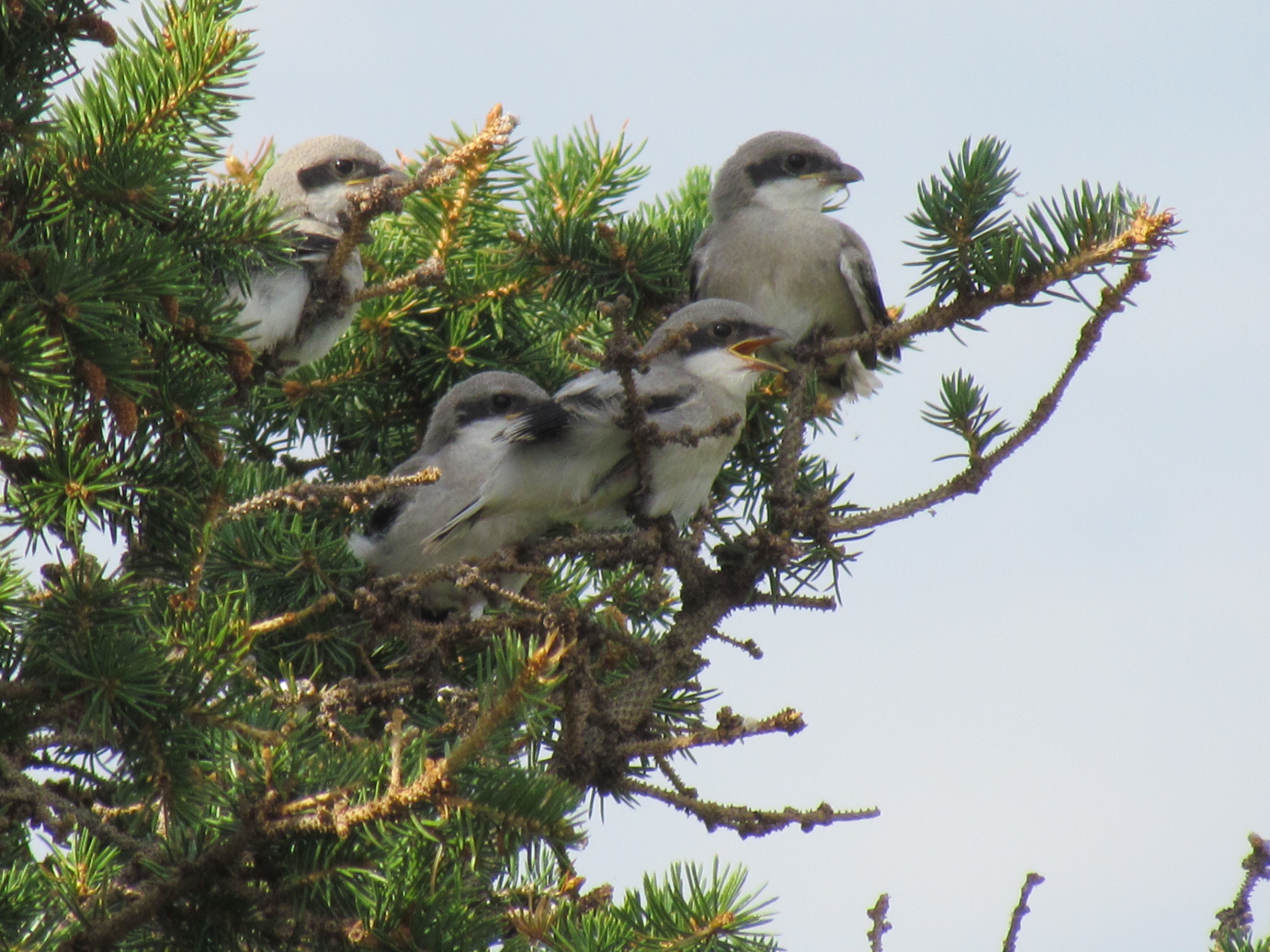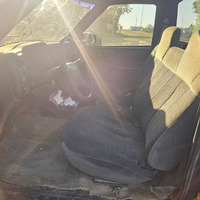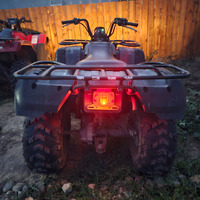With fall well on the way, countless species of birds have already set off on a lengthy annual journey south for the winter.
Nature Saskatchewan is looking to encourage southwest residents to be mindful and keep an eye out for birds on their seasonal migration.
Jordan Rustad, conservation coordinator at Nature Saskatchewan, shared that she works at Last Mountain Bird Observatory, where a migration monitoring bird banding station is set up.
"Some of the biggest things during migration are window strikes. A lot of people will notice an uptick in birds hitting their windows this time of year," said Rustad. "To prevent window strikes, the best thing you can do is use something called Feather Friendly tape.
"This is a Canadian company, and it basically creates a grid on your window, this breaks up the reflection, so birds don't hit your window."
 Photo of loggerhead shrikes. (Photo by L. Jack)
Photo of loggerhead shrikes. (Photo by L. Jack)Other threats that migrating birds face include difficulty navigating due to man-made light and fatalities resulting from animals such as cats.
"The other big thing that people can do is turn their lights off, even just turning off outdoor lights during evening hours," she said. "Birds use the stars to navigate, and cities act almost like light traps for the birds, it interrupts their navigation systems, and they can sometimes get trapped in cities."
Rustad highlighted that they're currently seeing significant songbird and warbler migration, and expect to see larger numbers of crane and goose migration come through the southwest soon.
Anyone who comes across an injured bird is advised to place it in a quiet, dark place, like a shoebox, and ensure the bird gets to a wildlife rehabilitation facility. Saskatchewan's wildlife rehabilitation facilities include Salthaven West outside of Regina and Living Sky Wildlife Rehabilitation in Saskatoon.
"Birds that do hit windows and are stunned can still sustain head trauma, so even if they do fly away okay sometimes they'll die later," she added. "But if you're able to get them to a wildlife rehab, they're able to give them some drugs to help with the brain swelling."























